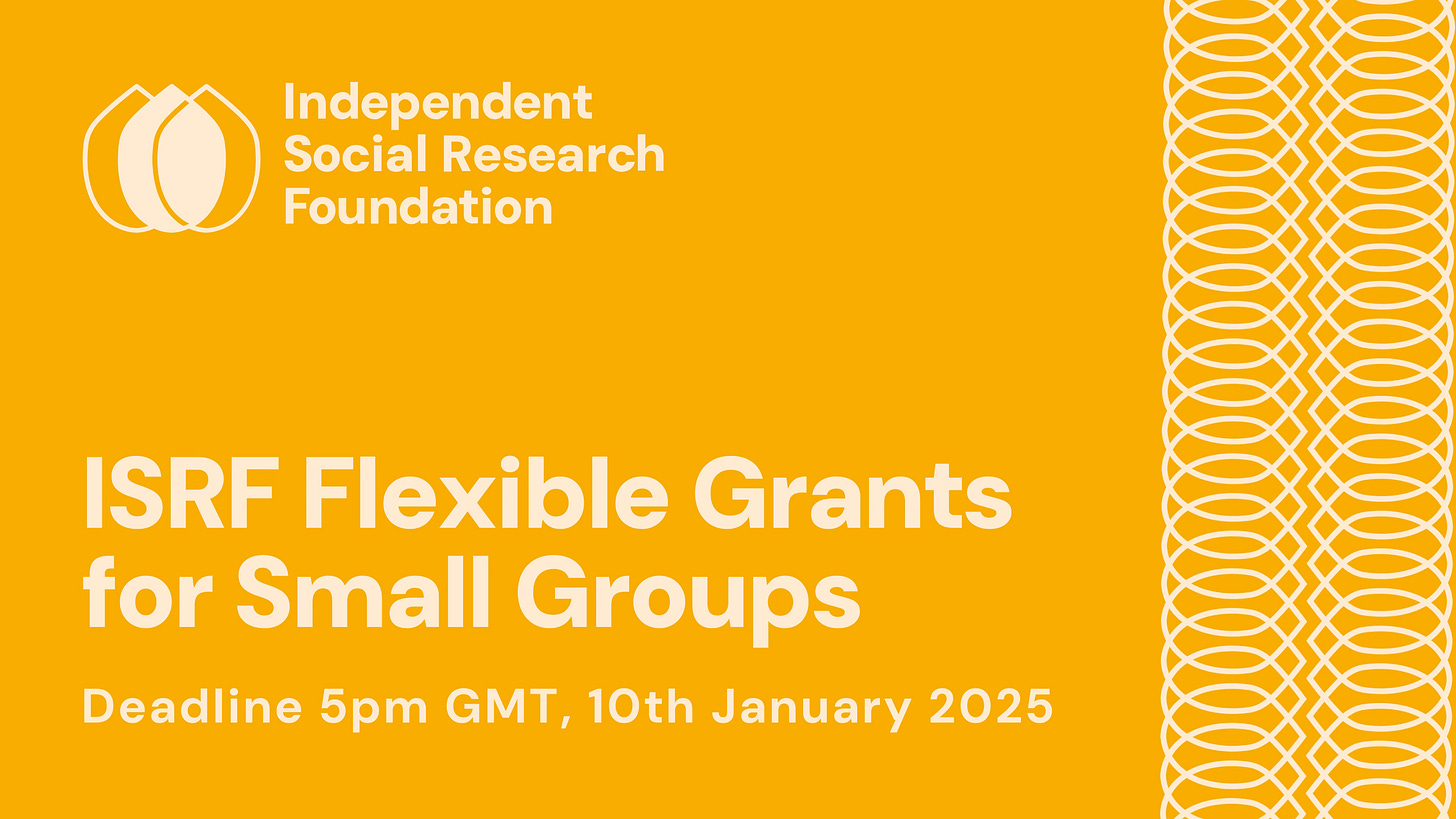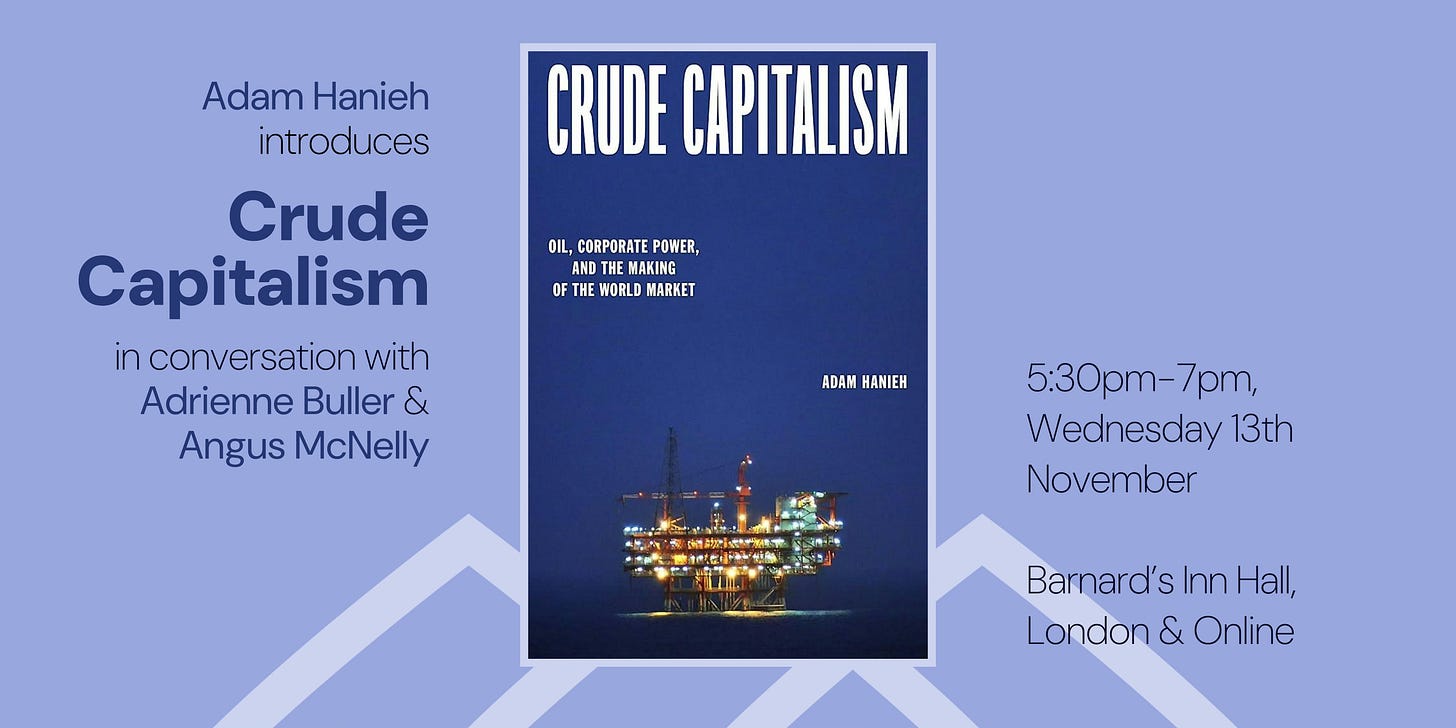Flexible Grants for Small Groups Competition – Launch Announcement
The ISRF has launched its eleventh Flexible Grants for Small Groups competition. Deadline for applications: 5pm GMT, 10th January 2025.
ISRF Flexible Grants for Small Groups Competition
The Independent Social Research Foundation wishes to support independent-minded researchers to explore and present original research ideas which take new approaches, and suggest new solutions, to real world social problems. Such work would be unlikely to be funded by existing funding bodies.
The Foundation intends to award on a competitive basis, to candidates of sufficient merit, a number of grants providing flexible support (for instance: relief from teaching and/or administration, research and travel expenses, fieldwork and practical work) for a period of (up to) one year for the activities of a small research group.
The awards are intended as enabling one or more short periods of face-to-face joint group work such as workshops, working-in-pairs, or short academic visits over a period of up to one year, and must be taken up (i.e. commence) no later than end of December 2025.
Scholars from within Europe are eligible to apply as Principal Investigator(s) to lead a small group of 2-10 scholars (which may include graduate students). Principal applicants should hold a PhD and will normally have a permanent appointment at an institution of higher education and research. Applications may be made by those whose sole or principal post is part-time equivalent. Independent scholars with an academic affiliation may also apply.
Eligible Research
The ISRF is looking for innovative research that breaks with existing explanatory frameworks so as to address afresh empirical problems with no currently adequate theory or investigative methodology. Innovation may also come from controversial theoretical approaches motivated by critical challenge of incumbent theories. Interdisciplinarity in the generation of new investigative initiatives may be achieved by combining, cross-fertilising, and so transforming empirical methods and theoretical insights from the social sciences. Projects ranging across the breadth of the social scientific disciplines and interdisciplinary research fields are welcome, and relevant applications from scholars working within the humanities are also encouraged.
Award Value
The amount of an award depends on the nature of the work proposed and individual circumstances – the ISRF expects applications for grants up to a maximum of €8,500 (or GBP equivalent).
† PLEASE NOTE: Applicants with based in the UK must apply in GBP (£), up to the limit of £7,100. All other applicants must apply in EUR (€), up to the limit of €8,500. These amounts are fixed, and will not be adjusted in the event of GBP/EUR currency fluctuations.
Applicants should consult the Criteria as set out in the Further Particulars and show that they meet them. Applicants are expected to submit their complete application electronically via the online application system, in English.
Closing date for applications is 5pm (GMT) on 10th January 2025.
Also, don’t miss…
We’ve known for at least forty years that we need to reduce the use of fossil fuels. Why, then, have we made so little progress? Why does oil’s grip on the world seem more unbreakable than ever?
In his new book, Crude Capitalism, Adam Hanieh offers some original answers to these questions. He describes our own everyday dependence on a range of oil byproducts like plastic. He tells the story of the “new axis of world oil now emerging around giant-non-Western firms in the Middle East and East Asia.” He details the networks of corporate control that embed oil more deeply than ever into the global system. He shows how capitalism would not have become what it is without oil to fuel it, which may mean that we will need to do without capitalism if we want to do without oil. Synthesising unique empirical detail with a grand historical narrative, Hanieh changes our sense of oil’s centrality while opening new prospects for going beyond it.
Please join us for Adam Hanieh’s presentation and the discussion of a book that makes an essential contribution to debates around oil-dependency and the struggle for climate justice.
Adam Hanieh is Professor of Political Economy and Global Development at the University of Exeter. He will be joined by two panelists: Adrienne Buller, Associate Fellow at Common Wealth and author of The Value of a Whale (2022); and Angus McNelly, Lecturer in International Development at King’s College London and author of Now We Are in Power: The Politics of Passive Revolution in Twenty-First Century Bolivia (2023). A Q&A will follow, moderated by Chris Newfield, ISRF Director of Research.



